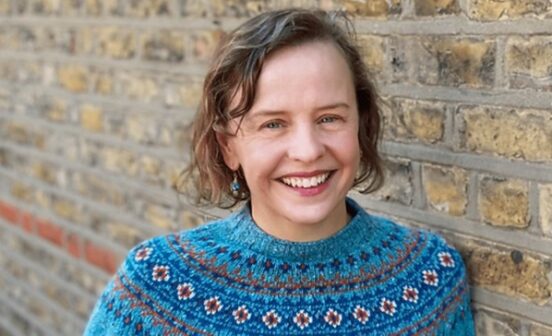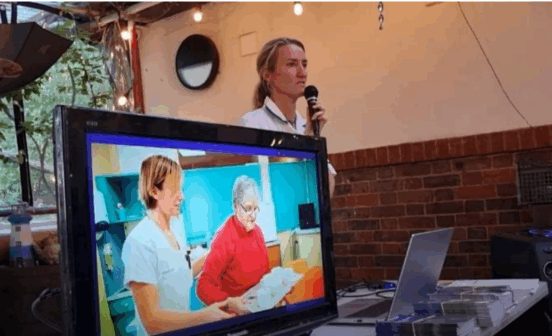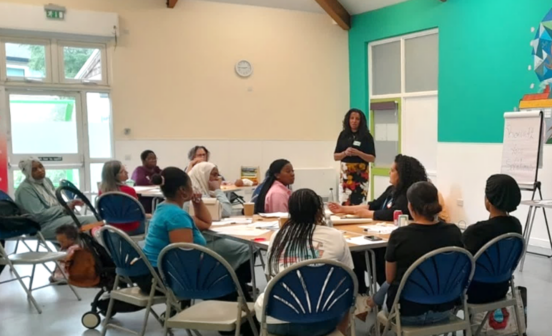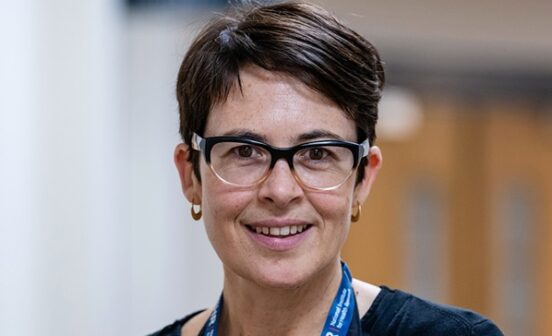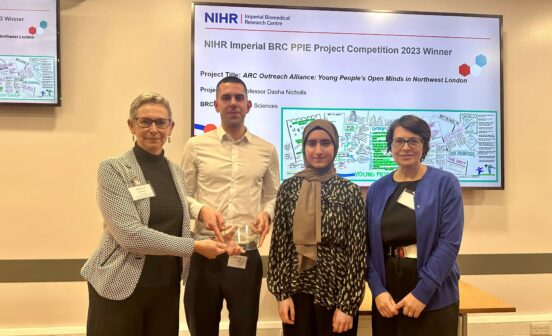AwardPPIE Winner announced for the BRC Public Involvement in Research Competition 2024
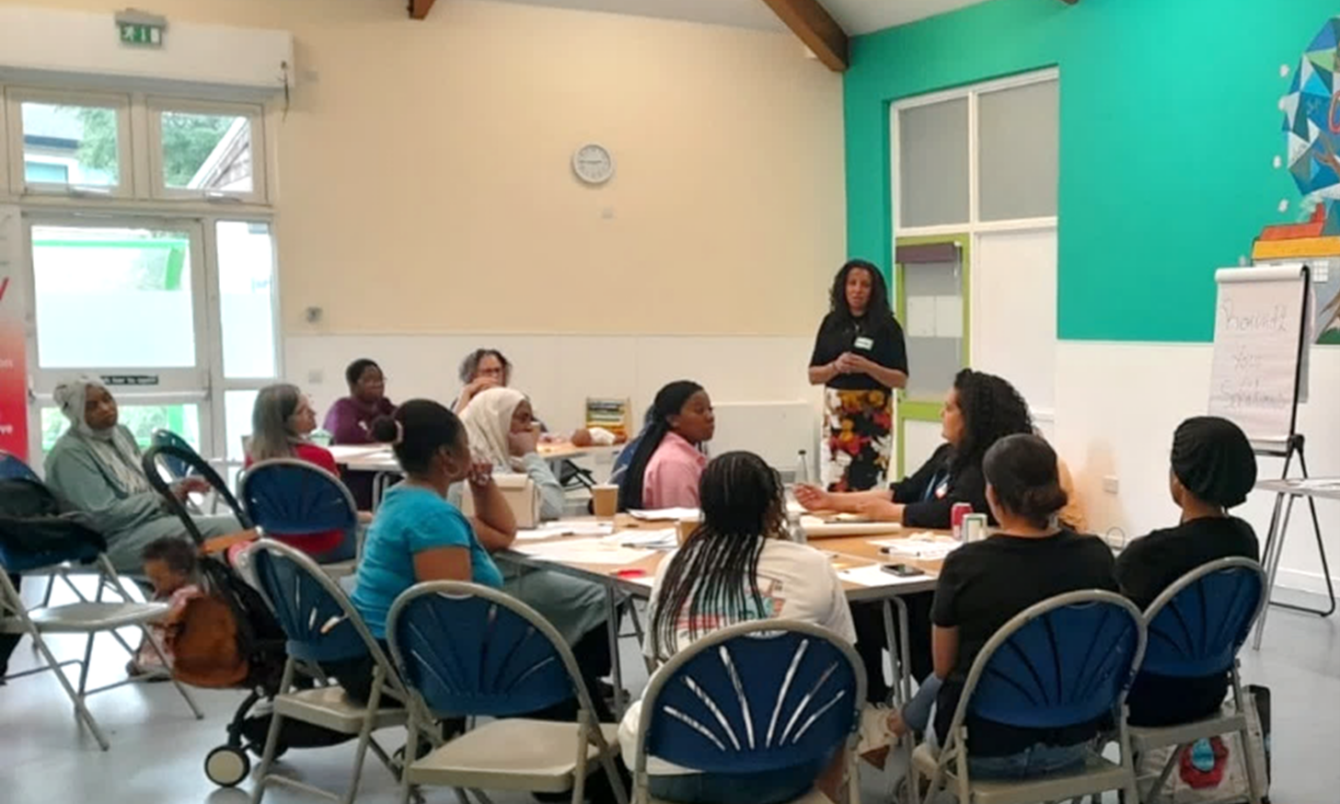
The winner of the NIHR Imperial BRC Public Involvement in Research Competition 2024 was announced early this month.
The project titled, Addressing ethnic inequities in maternity care for Black, African, Caribbean, and mixed-Black families through co-production within the North West London integrated care system, won the competition. The winner will receive a trophy and present her work along with a community partner at the next BRC Annual Event in March 2025.
The PhD project has partnered with Black, African, Caribbean and mixed-Black women and birthing people, NHS, councils, and the voluntary sector to improve the experience of maternity care in North West London. This work aligns with the NHS Core20plus5 national health inequalities agenda, which has a key focus on reducing maternal health inequalities.
It provides evidence of how collaborative efforts that bring together community partners, charities, community organisations, NHS and local authority professionals, can reap widespread results in tackling nationally recognised concerns.
The project’s first paper was published last month in the BMJ Quality and Safety, which describes how community and professional groups came together to prioritise improvement ideas on how to address ethnic inequities in maternity care. The community workshops were led by community organising specialists Nawal Lakhdar, from Apricot Wellbeing CIC, and Moussa Amine Sylla, from Listen to Act charity.
The main author, Sarindi Aryasinghe, PhD candidate and programme manager within the NIHR Imperial BRC Digital Health Theme, said,
“I am honoured to receive this year’s NIHR Imperial BRC Public Involvement in Research award. This achievement would not have been possible without the continued commitment and support from my community partners and everyone who shared their stories, and for that I am always grateful. The reality is that in the UK, maternal mortality in Black, African, Caribbean, and mixed-Black women and birthing people are three-times higher than their white counterparts, and they continue to face difficulties and discrimination when navigating maternity care, and poor health outcomes due to the wider social determinants of health. If we are to make meaningful changes, we need to use an integrated, community-centred approach that goes beyond hospital settings.”
Susan Ibuanokpe, one of the project’s community partners and founder of Mama’s House, a community organisation that provides culturally relevant and trauma-informed pre and postnatal support, said,
“This research was a joy to contribute to, as well as to be a part of. To see the way the community came together to hear from these incredible voices and to see the investment that went into making sure these women felt safe to share their experiences, I realised how important it is to facilitate safe listening spaces for Black women. The collaboration with maternity professionals from obstetricians, midwives to GPs, really helped me to better understand maternity care through the clinicians’ eyes, and how important it is that clinicians are constantly exposed to service user experiences and perspectives. What will come of this research will truly shape the future of maternity care for Black women across the nation, and I can’t wait to be a part of it.”
Muna Noori, Clinical Director of Maternity at Imperial College Healthcare Trust adds,
“Imperial College Healthcare Trust is deeply committed to reducing maternal health inequalities, particularly among Black and Asian women and birthing people. Fostering strong relationships with local stakeholders, will enable us as healthcare providers, to better understand and respond to the challenges that affect maternal health, ensuring that care is accessible, culturally appropriate, and supportive. Being part of this community co-production research project has been an incredibly rewarding experience. Collaborating with such a diverse group of stakeholders to create something meaningful was inspiring and energising and reinforced the power of community engagement in bringing about positive change.”
Elizabeth Cox, Senior Lead Public Health Nurse at London Borough of Hammersmith and Fulham, said,
“Collaboration and shared power with communities is challenging and often nerve-wracking for those working in health and social care, especially as it can seem to raise issues for which it feels there is no clear solution. This experience showed me how differing perspectives can complement and overlap bringing richness and greater validity and applicability to proposals when layered together.
Supporting the community group for this research was especially impactful. Powerful stories were shared, and the skill of trauma expertise was key. Community participants afterwards told me that they appreciated the lived experience experts’ understanding, and the experience was cathartic. The key now is how what has been given is treated and to include these brave people in how we take this forward. I look forward to the next steps in this research.”
Future research and next steps
Sarindi is collaborating with Associate Professor Dr Abimbola Ayorinde from the University of Warwick on an initiative to expand their participatory research efforts. Together, they have secured £25,000 in funding to replicate the published study within the Coventry and Warwickshire integrated care system. This initiative will adopt the same public involvement approach successfully developed in North West London, working alongside local maternity charities to deliver community prioritisation workshops.
As part of her PhD research, Sarindi will also focus on advancing a key priority identified through this work: co-producing a community advocate programme to support Black, African, Caribbean, and mixed-Black heritage families through their maternity journey.

